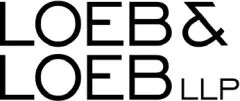In a 5-4 decision, the U.S. Supreme Court upheld June 28, 2012, virtually all of the Affordable Care Act (with certain limitations as to the expansion of Medicaid under the Act), ruling that although the individual mandate to purchase health insurance is itself unconstitutional, the fine assessable against individuals who fail to obtain health insurance constitutes a "tax," the levying of which falls within Congress' constitutional taxing powers. As a result, subject to changes in the political landscape from the upcoming elections, the 2014 provisions of the Act will go into effect as scheduled, joining those provisions already in effect.
Employers should consider now the potentially significant increases in health care premiums forecasted by economists when these provisions go into effect. To the extent employees will be required to make up some of the difference (e.g., through increased employee contributions and co-pays), employers also should begin to explore their options, as well as attempt to manage the expectations of their employees in connection with the coming changes.
The content of this article is intended to provide a general guide to the subject matter. Specialist advice should be sought about your specific circumstances.


